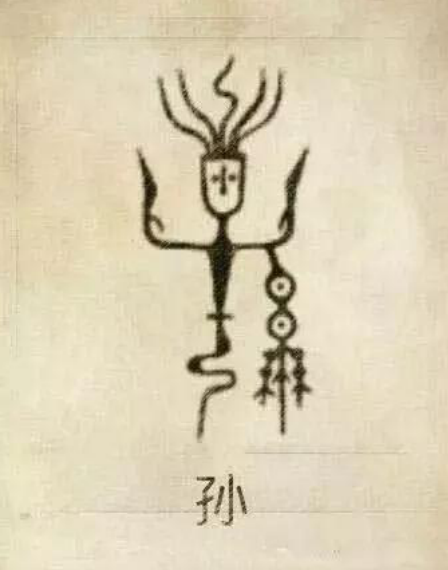Introduction
The Sun surname ( sūn) is one of China's oldest family names, tracing back over 2,600 years. More than just a name, it represents a living archive of military strategy, cultural philosophy, and nation-building. For Americans curious about Chinese history, the Sun lineage offers a fascinating window into how ancient wisdom shaped a civilization. Let’s explore its origins, legendary figures, and enduring global influence.

Origins: Three Founding Branches
The Sun surname emerged from three distinct historical roots, each tied to pivotal moments in ancient China:
The Royal House of Zhou
Key Figure: Sun Wu (Sun Tzu), author of The Art of War.
Origin Story: Descendants of Ji Fa (King Wu of Zhou) adopted "Sun" as their surname to honor their ancestor, Hui Sun, a 9th-century BCE statesman. This branch produced Sun Tzu, whose strategic principles are studied by the U.S. military and business leaders today.
The Reformers of Chu
Key Figure: Sunshu Ao, architect of China’s earliest water conservation system.
Origin Story: This branch originated from Sunshu Ao, a revered 7th-century BCE Chu minister. His descendants adopted his title, blending royal heritage with administrative excellence.
The Warriors of Qi
Key Figure: Sun Bin, master strategist of the Sun Bin’s Art of War.
Origin Story: The Qi kingdom awarded the surname "Sun" to General Tian Shu for his military valor. His grandson Sun Bin later devised tactics like the "Battle of Guiling"—a classic example of misdirection still cited in modern warfare.
Legends Who Shaped History
From philosophers to revolutionaries, Sun luminaries left indelible marks:
Sun Tzu (544–496 BCE): His Art of War is a global bestseller, influencing everything from Silicon Valley startups to NFL coaching strategies.
Sun Quan (182–252 CE): Founder of the Eastern Wu kingdom, celebrated for unifying southern China and fostering maritime trade.
Sun Yat-sen (1866–1925): Known as the "Father of Modern China," he led the 1911 Revolution that ended imperial rule. Stanford University’s Hoover Institution holds his personal archives.
Sun Simiao (581–682 CE): A medical pioneer whose Essential Formulas for Emergencies laid the foundation for traditional Chinese medicine.
Cultural DNA: Strategy, Innovation, and Global Impact
The Sun legacy transcends borders:
Military Philosophy for Modern Life
Sun Tzu’s maxims like "Know yourself and know your enemy" are quoted in TED Talks and corporate boardrooms. Archaeologists confirmed his lineage’s influence with the 1972 discovery of Sun Bin’s Art of War bamboo slips in Shandong.
Architectural Time Capsules
Sun Bin’s strategy maze in Shandong mirrors his battlefield ingenuity.
The Sun Yat-sen Mausoleum in Nanjing, with its 392 granite steps, symbolizes China’s democratic aspirations.
A Diaspora of Achievers
From Sun Jia-dong (architect of China’s lunar program) to Masayoshi Son (SoftBank’s CEO), Sun descendants excel in tech, medicine, and the arts. Over 18 million people bear the surname worldwide, with clusters in Shandong, California, and Guangdong.
Why the Sun Legacy Matters Today
The Sun surname isn’t just about ancestry—it’s a testament to adaptability. Whether through Sun Tzu’s timeless strategies or Sun Yat-sen’s democratic vision, this lineage shows how ancient ideas fuel modern progress.
Fun Fact: Did you know the "36 Stratagems" from Sun philosophy inspire NBA coaches and AI algorithms alike?